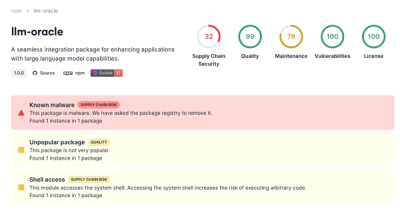Reboost
Reboost your web development workflow.
Experimental.
Reboost is still in the alpha stage. Some things might not work. API can change any time.
Motivation
When developing a web app, as your number of modules increases,
your compile-time slows down, it's really a big problem, it takes a lot of precious
time which you could have used to develop your app. Since ES2015 (aka ES6) modules
are supported natively by browsers. If you can connect (or you can say serve) them
up correctly, it will work on browsers without the need for bundling. Here, Reboost
does that for you - the serving part. So you can develop your app faster.
NOTE:
- Reboost only serves your scripts while developing, for production you've to
bundle up your files by yourself using bundlers like Webpack, Rollup, etc.
Quickstart
First, install it using npm as devDependency
npm i -D reboost
Assume that file structure is like this
Project
public/
index.html
src/
add.js
subtract.js
index.js
package.json
Script contents
export const add = (a, b) => a + b;
export const subtract = (a, b) => a - b;
import { add } from './add';
import { subtract } from './subtract';
console.log('1 + 3 =', add(1, 3));
console.log('10 - 5 =', subtract(10, 5));
and HTML content (public/index.html)
<!doctype html>
<html>
<body>
<script type="module" src="./dist/bundle.js"></script>
</body>
</html>
then create a file named reboost.js
const { start } = require('reboost');
start({
entries: [
['./src/index.js', './public/dist/bundle.js']
],
contentServer: {
root: './public'
}
})
after that run the script using node, open your terminal in that directory and use the command
node reboost
Now open the address in which the content server is started. You can see your code is working without any problem.
What if I want to use any other server?
Reboost's content server is basically static, it just serves the file. If you want
to use any other server (like browser-sync or your own http server) you can do that,
you've to just serve the generated scripts which are in your output directory.
Reboost will handle the rest.
Supporting old browsers while using script type="module"
You may know that script with module type is only supported by modern browsers
that support ES modules. Old browsers don't know what script type="module" is,
so they will just ignore it and break your web app. So how can we fix that?
What you've to do is, generate two bundles from the same script. One bundle will
target ES2015, let's name it bundle.js and the other one will target old browsers with
polyfills and other stuff, let's name it bundle.fallback.js. In your HTML add them like
<script type="module" src="path/to/bundle.js"></script>
<script nomodule src="path/to/bundle.fallback.js"></script>
What does it do? Modern browsers know what script with attribute nomodule means,
so modern browsers won't load path/to/bundle.fallback.js but cause old browsers
don't know what it means, they will load the script as regular scripts. In this way
you can support both old and modern browsers while using script type="module".
Plus point: Modern browsers will load less code as the code is not
bloated with polyfills and the page load will be faster for modern browsers.
Features
- No bundling. So the server start time is fast.
- Incremental Builds, transforms only the file which is requested or changed.
- Caches transformed files, so it can serve fast if the file hasn't changed.
- Source maps support for better debugging.
- Supports CommonJS modules.
- Support for Plugins.
- Import resolving.
- Hot Module Replacement.
Compatibility
Reboost works with both CommonJS and ES modules, so you can try it even
if you're not using ES modules, though using ES modules is recommended.
HMR API
HMR API is pretty straight forward.
- For self-accepting modules
import { hot } from 'reboost/hmr';
export let someExport = 10;
if (hot) {
hot.selfAccept((updatedMod) => {
someExport = updatedMod.someExport;
});
hot.selfDispose(() => {
});
}
import { name } from './some-module';
import { setName, resetName } from './another-module';
import { hot } from 'reboost/hmr';
setName(name);
if (hot) {
hot.accept('./some-module', (updatedMod) => {
setName(updatedMod.name);
});
hot.dispose('./some-module', () => {
resetName();
});
}
Configurations
There are a few configuration options that you can use to customize Reboost. You would use options when starting
Reboost, like so
const { start } = require('reboost');
start({
})
List of all options
cacheDir
Type: string
Default: ./.reboost_cache
Directory to use for storing cached files.
entries
Type: ([string, string] | [string, string, string])[]
File entries which will be served by Reboost. Value is an array of an array containing input
and the output file's path
For single file
const { start } = require('reboost');
start({
entries: [
[inputPath, outputPath]
]
})
For multiple files
const { start } = require('reboost');
start({
entries: [
[inputPath1, outputPath1],
[inputPath2, outputPath2],
...
[inputPathN, outputPathN],
]
})
If you're authoring a library and want all your exports to be available through the
window object with a name you can pass an extra string in your array
src/index.js
export const add = (a, b) => a + b;
export const subtract = (a, b) => a - b;
reboost.js
const { start } = require('reboost');
start({
entries: [
['./src/index.js', './dist/library.js', 'coolLib']
]
})
In browser
window.coolLib
As you expected, exports are available through the window object
rootDir
Type: string
Default: .
Directory to use as the root directory. Used to resolve relative paths.
resolve
Type: object
Configurations for module and file resolving
resolve.alias
Type: { [aliasName: string]: string }
Default: {}
Paths to use when resolving aliases, create your own alias to ease importing.
Example
const { start } = require('reboost');
start({
resolve: {
alias: {
Components: './components'
}
}
})
Instead of using relative paths you can use alias.
Some deeply nested file -
import ProgressBar from '../../../components/progressbar';
Now you can do
import ProgressBar from 'Components/progressbar';
resolve.extensions
Type: string[]
Default: ['.mjs', '.js', '.json']
Extensions to use for resolving files.
import mod from './mod';
import mod from './mod.js';
It returns the first file with the first matched extension, so extension ordering matters.
resolve.mainFiles
Type: string[]
Default: ['index']
File names to use while resolving directories.
import main from './subdir';
import main from './subdir/index';
resolve.modules
Type: string[]
Default: ['node_modules']
Directories to use while resolving modules.
watchOptions
Type: object
Options to use for watching files
watchOptions.include
Type: Matcher
Default: /.*/
Files to include in the watch-list. Can be any of anymatch
patterns. By default, all files are watched except for excluded files.
watchOptions.exclude
Type: Matcher
Default: /node_modules/
Files to exclude from watch-list. Can be any of anymatch
patterns. By default, all files which are in node_modules are excluded.
watchOptions.chokidar
Type: chokidar.WatchOptions
Default: { awaitWriteFinish: { stabilityThreshold: 250 } }
Options to use when initializing chokidar.
sourceMaps
Type: object
Options to use when generating source maps.
sourceMaps.include
Type: Matcher
Default: /.*/
Files to include in source map generation. Can be any of anymatch
patterns. By default, source maps are generated for all files.
sourceMaps.exclude
Type: Matcher
Default: /node_modules/
Files to exclude from source map generation. Can be any of anymatch
patterns. By default, all files which are in node_modules are excluded.
plugins
Type: ReboostPlugin[]
An array of plugins to be used by Reboost.
Plugins
There are several built-in plugins from Reboost.
Read more about built-in plugins.
Plugin API
Reboost plugins are objects with function as properties.
A plugin object can contain five properties - setup, resolve,
load, transformContent, transformAST.
Your plugin package should export a function that returns the Reboost plugin compatible object.
Sample Plugin
Here's an example of a sample plugin, which logs when it starts
module.exports = function samplePlugin() {
return {
setup() {
console.log(`Sample plugin is starting`);
}
}
}
const { start } = require('reboost');
const samplePlugin = require('./sample-plugin.js');
start({
entries: [
['./src/index.js', './public/dist/bundle.js']
],
plugins: [
samplePlugin()
]
});
All plugin properties
setup
Type: (config: ReboostConfig, app: Koa, router: Router) => void
Executes when Reboost starts. You can start your services,
add server functionality, or do the initial setup in this function.
The first argument is the configuration options object which is passed
when starting Reboost. The second argument is the Koa
app instance used by Reboost. The third argument is a koa-router instance used by koa.
resolve
Type: (importPath: string, importer: string) => string
Used to resolve an import path. If your plugin is a resolver or needs
to resolve specific paths, use this hook. The first argument is the path
being used to import a file, the second argument is the absolute path to
the file which is using the import path. This function should return an
absolute path to the file being imported.
load
Type: (filePath: string) => { code: string; original?: string; map?: string; }
Used to load the code of a file. The first argument is the absolute path
to the file which should be loaded. This function should return an object with
one required property and two optional properties. The required property is
code, code should be a string of JavaScript code, most of the time
made by transforming the original code. The optional properties are original and map,
if your loaded code is transformed, you should set original property to the
original source string of the file and map to the source map string which maps the
transformations made to the file.
transformContent
Type: (sourceCode, filePath) => { code: string; map: string; }
Used to transform the code as a string. The first argument is the source code of
a file and the second argument is the absolute path to the file from which the source code
is generated. You should do your transformation in this function and return an object with
two properties - code and map. code should be the code which is generated after
your transformations and map should be a string of source map which maps all the
transformations made.
transformAST
Type: (ast: ASTNode, babel: { traverse: BabelTraverse; types: BabelTypes; }, filePath: string) => void
Used to transform the AST. The first argument is the AST of the code.
The second argument is an object which includes two properties -
traverse - Babel's traverse function
and types - Babel's types. The third
argument is the absolute path to the file from which the AST is generated.
All of these functions can be async as well.
Inspired by
Reboost is highly inspired by these awesome projects
License
Licensed under the MIT License.



